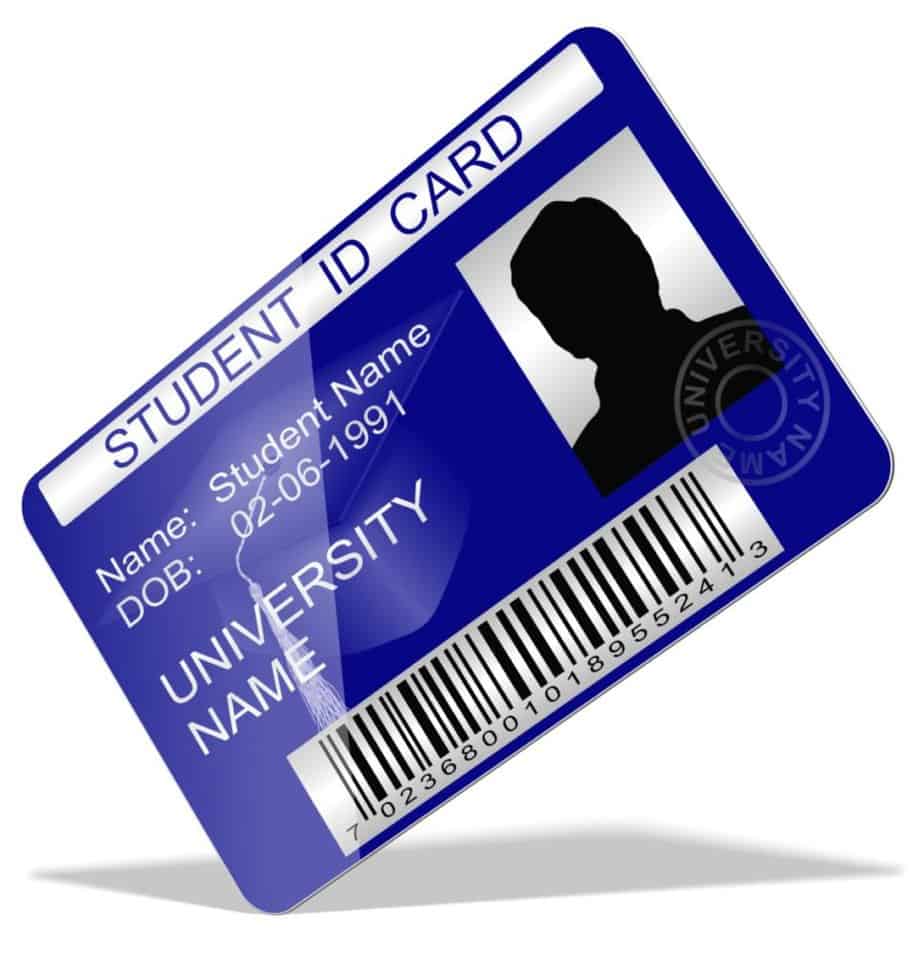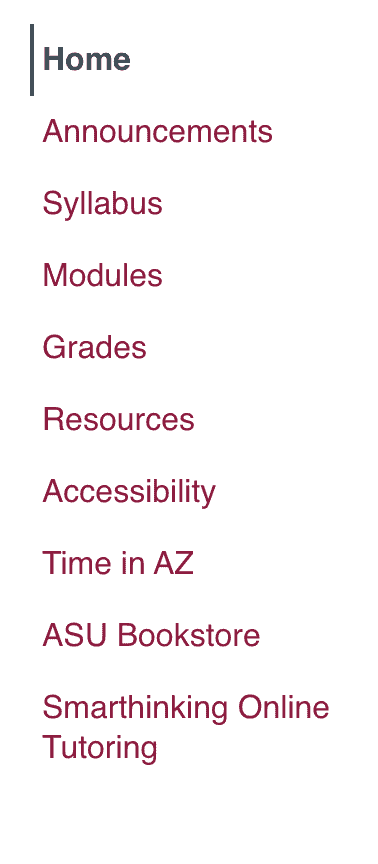- High School
- College Search
- College Admissions
- Financial Aid
- College Life


7 Ways to Start Your Semester Right
A new semester means a fresh start. That’s exciting, but sometimes you aren’t sure where to begin. How can you make sure that this semester is more successful than your previous semester? What do you need to do differently?
You may be surprised to find that a few simple changes can have a profound impact on your success. Get your semester started right by practicing these seven strategies, and your productivity will soar.
1. Get organized
Organization helps you reduce chaos and stress, thus making you more productive. Develop a system at the start of your semester. This may include:
- Color coded notebooks and/or folders for each class
- A planner with important dates and deadlines filled out (do this as you receive your syllabi), potentially even color-coded to match your notebooks
- Cleaning out your backpack, desk, and dorm room to reduce clutter from previous semesters
- Organizing your computer files (e.g., by school year, semester, course, and assignment type or project)
- Designating a place to keep your notebooks, folders, and other school supplies when you are not in class
Different systems work for different people, but the key is having one that makes sense to you. If you keep track of deadlines , know where to find everything, and maintain a well-organized space, you free up your mind to focus on learning and achieving.
2. Get into a routine
Like being organized, establishing a routine helps your life run smoothly. It leaves you more brain power for organic chemistry or business mathematics.
It’s easier said than done, but try waking up and going to sleep around the same time each day (or at least on weekdays). Schedule time for the gym, any clubs or activities you participate in, and studying. Instead of waiting until the last minute to work on assignments or cram in information, set aside studying/homework blocks each day. Choose a time of day when you feel especially productive.
Start each day on a positive note by preparing the night before. For instance, set out the outfit you’ll wear to class and pack your backpack with the supplies you’ll need that day. Instead of frantically scrambling around in the morning, you’ll begin the day feeling confident and prepared. Ultimately, these small habits make a big difference in your overall mood and performance.
3. Go to class
Yes, it may be too early, or nearly impossible to find parking, or maybe you got the cool professor who says attendance is optional. Still, going to class is one of the simplest ways to have a successful semester. (Plus, you might as well get your money’s worth.)
By going to class, you’ll have the opportunity to:
- Get to know your peers, who can be sources of information and support
- Get to know your professor, who can answer questions and may note your interest and participation when it’s time to grade papers and finals
- Earn easy participation points (in some classes)
- Take notes and absorb important information
- Maximize these benefits by sitting near the front of the classroom, where it’s easier to focus and read the board. In addition, your professor is sure to see you and your enthusiasm for their class.
4. Take notes and ask questions
We’ve already discussed going to class, but sitting there zoning out or dozing off isn’t enough. Actively take notes and ask questions as needed.
If you have too many questions to ask during class, don’t be afraid to attend your professor’s office hours. It’s a great and underutilized way to build a relationship with your professor and learn valuable information one-on-one. For instance, you can ask about a problem type you’re struggling with or go over your most recent essay and how it was scored.
And remember, no one knows how to ace your class better than the professor who designed it, teaches it, and determines your grade. Often, you’ll pick up extremely useful tips and hints simply by visiting your professor.

When it comes to retention, it’s best if you write your notes by hand. However, if your professor talks too fast or you find yourself falling behind, it’s OK to use your laptop instead.
As you take notes, save yourself time by using shorthand (that you will understand later). Don’t try to write down every single word your professor says. Don’t write it if you already know it.
Look for information that isn’t already mentioned in your textbook or readings, and note when your professor emphasizes something or repeats it more than once.
If possible, write headings and subheadings for your notes during class. If not, take a few minutes right after class to do so. This will help you find key information later, and breaking the information down into chunks helps you remember it.
Of course, don’t forget to review your notes once you’ve taken them! Consistently reviewing your notes for short periods of time is far more effective than trying to cram right before the test. For example, read over your most recent notes while you grab lunch between classes or as you ride the bus home.
5. WOOP your goals
You probably have a few goals for the semester, right? Having goals is a great first step, but achieving them is a whole different story.
Based on 20 years of research, psychologist Gabriele Oettingen developed a mental strategy called WOOP that helps people turn their goals into reality. WOOP stands for:
- W ish- What is your goal? It should be both challenging and reasonable.
- O utcome- What will it look like and feel like to reach this goal? What will be the best, most positive outcome of this achievement? Take time to imagine and feel it.
- O bstacles- Are there obstacles that have held you back from reaching this goal in the past, or obstacles that might hold you back? This includes inner obstacles, like self-doubt or bad habits.
- P lan- If these obstacles occur, what action or thought will you use to overcome them? Write an if/then statement: If [obstacle], then I will [action or thought].
By intentionally practicing visualization and planning, you’re much likelier to achieve your goals. Instead of becoming discouraged by an unexpected obstacle, you’ll be ready to handle the setbacks that come your way.
6. Surround yourself with motivated peers
Maybe you’ve heard the saying, “Show me your friends and I’ll show you your future.” It may sound dramatic, but it’s true that the people you spend the most time with have a major influence on you. If your friends are partying every night, skipping class, and seemingly unconcerned about their grades, staying motivated will be an uphill battle for you. Try to make at least one positive friend in every class. Meet ambitious people with clearly defined goals, good study habits, and healthy lifestyles. These friends can help you stay accountable, and they make great study buddies too.
7. Take good care of yourself
Finally, remember to practice self-care and healthy habits. When you eat poorly and don’t get enough sleep, it impacts your mood and your mind. You may feel fuzzy and forgetful, and you’ll have a tough time learning new concepts. Obviously, this is not helpful for a successful semester.
Eat nutritious meals (as often as you can), exercise, and get plenty of rest. Studying in small chunks instead of relying on cram sessions is one way to ensure you sleep enough. You can also check out helpful apps like Sleep Cycle, Headspace, and Calm.
If you use the six previous tips, sleeping and studying don’t mean you’ll miss out on a social life, contrary to popular belief. By practicing good habits, you can achieve a balance between all three.

Final Thoughts: How to Get Your Semester Started Right
Having a successful semester doesn’t mean you need to be the most gifted person in the room, or the most stressed. It’s all about small habits that make a big difference. Get off to a positive start by being organized, creating and maintaining a routine, going to class and being an active learner, using the WOOP strategy, finding positive friends, and taking good care of yourself. Creating new habits is tough at first. Stick with it, and you’ll find that you’re far more productive and successful—and probably happier, too.
Author: Jason Patel
Jason Patel is the founder of Transizion, a college counseling and career services company that provides mentorship and consulting on college applications, college essays, resumes, cover letters, interviews, and finding jobs and internships. Jason’s work has been cited in The Washington Post, BBC, NBC News, Forbes, Fast Company, Bustle, Inc., Fox Business, and other great outlets. Transizion donates a portion of profits to underserved students and veterans in of college prep and career development assistance.
More Articles By Niche
Having spent nearly three semesters there already, I’ve had my fair share of conversations with non-Princetonians about my experiences there, and I have to say, being such a famous university, there are a lot of outside perspectives on Princeton that aren’t quite reflective of how Princeton truly is.
If you have ever wanted to become an RA and are looking for some tips on how to excel in the process, you have come to the right place.
Here are 10 key statements that could change your sorority recruitment process that no one tells you.
- Request Info
- Personal Support Center
- Undergraduate
- International Students
- Admitted Students
- Commit & Deposit
- Cost & Aid
- Academics Overview
- Majors & Programs
- Academic Calendar & Catalog
- Career Services
- Tutoring and Accommodations
- Student Life Overview
- Student Central
- Clubs & Organizations
- Campus Ministry
- Student Experience
- Campus Police
- Counseling Services
- About Concordia University Texas
- Commitment to Belonging
- Our History
- Mission, Vision & Values
- Lutheran Identity
- President's Office
- Campus Maps
- Navigate for Student
- Employee Portal
13 Tips for How To Prepare for a New Semester in College

Woosh! It's me, VorTex the Tornado, the official Concordia University Texas mascot.
I'm incredibly excited because the new semester is just around the corner. I can't wait to see all of the Concordia Tornados spinning around campus once again!
I've compiled my 13 top tips for how to prepare for a new semester in college.
Tip 1: Pay Your Tuition In Person or By Mail to Avoid Extra Fees
Tuition is due before you begin a new semester in college.
At Concordia, payment is due two weeks before classes start. The University offers multiple ways to pay, including in person, online, by mail, and through a payment plan.
Here's a helpful Concordia hack: pay your tuition either in person or by mail to avoid extra fees.
If you pay online with a credit or debit card, you will have to pay a service fee. If you use a payment plan, which spreads the tuition balance over the semester, you have to pay an enrollment fee of $25.
The best options are to pay your tuition in person at Student Central (C-256, second floor of Cedel Hall) or by mailing your money to the Accounting Office.
Learn more about paying tuition at Concordia .
Tip 2: Learn Your Semester Schedule.
Whether you're a freshman beginning your first-ever semester in college, a senior beginning your last year, or somewhere in between, it's always helpful to learn your class schedule to prepare for a new semester in college.
Your schedule has all of the information you need for your classes, including the location, meeting times, professor's name, number of credit hours you will earn, and more.
Keep a digital or physical copy of your schedule close during the first few weeks of class. That way, you won't forget when or where your classes meet.
At Concordia, you can find your schedule on MyInfo:
- Log into MyInfo .
- Click "Student Records."
- Click "Registration."
- Click either "Week at a Glance" or "Student Detail Schedule."
Tip 3: Introduce Yourself to Your Professors.
A great way to prepare for a new semester in college is to get to know your professors as soon as possible. Send them a short email to introduce yourself. You can even tell them what you're looking forward to learning.
If your Concordia class schedule doesn't have your professors' contact information, use this template: [email protected] . Just fill in their first and last names.
Tip 4: Make Sure You Have the Right Textbooks.
It can be confusing when you have the wrong edition of a textbook, especially if your professor references a specific page and the page in your book has something different.
Prepare for a new semester in college by double-checking that you have the correct editions of the required textbooks and any access codes if required.
Concordia's Tornado Textbooks program makes it a hassle-free process. Every CTX student is automatically enrolled in the program.
Here's how it works:
- The Concordia Bookstore provides all of your required books for the semester at a rental fee of $25 per credit hour.
- The program includes required access codes.
- The bookstore will deliver all of your textbooks one week before the semester begins.
It's that easy! Learn more about the Tornado Textbooks program .
Tip 5: Read a Book You Enjoy Before the Semester Begins.
You may be thinking, "VorTex, I'm about to begin a semester of required reading. You want me to start reading during my break?"
Yes, that's right!
To prepare for a new semester in college, read a book. It will help you ease back into the habit of reading and prepare you for required reading.
You can choose anything, whether it's a fiction novel or non-fiction book about a topic that fascinates you, such as — here's a random idea — tornados.
As a student at Concordia, you have access to thousands of e-books through the CTX Library .
Tip 6: Look Over the Syllabus.
Another helpful way to prepare for a new semester in college is to look over each class syllabus.
The syllabus is a valuable document that includes the professor's expectations of you as a student, the coursework and projects you will complete throughout the course, and a schedule of due dates.
If you read through each syllabus ahead of time, you won't be as overwhelmed during the first few days of class.
Tip 7: Check Your School Supplies.
It may seem obvious, but many students forget to check their school supplies.
To prepare for a new semester in college, make sure you have the supplies you need. If you like to take hand-written notes, make sure you have plenty of paper/journals and pens or pencils. If you prefer to type your notes on your computer or tablet, ensure that you have your charging cable with you.
Nobody wants to be the student asking for a pen or paper. If you do have extra supplies, help out students who didn't plan ahead by lending them some of your supplies.
If you find yourself in need of supplies quickly, drop by the Concordia Bookstore in Building B, where you can find paper, journals, pens, pencils, and more.
Tip 8: Choose Your Seat Wisely.
Did you know that where you choose to sit in class can have an impact on how well you do and how much you learn?
Although this is a day-of-class task, it's a helpful tip to keep in mind as you prepare for a new semester in college. Get to each class early so that you can choose the seat that's best for you.
If you get distracted easily, sit in the front. When you're sitting right in front of the professor, you're more likely to pay attention.
If you use a computer or tablet, choose a seat by an electrical outlet. That way, if your device needs to charge, you don't have to move.
If you have strong self-discipline or tend to be claustrophobic, opt for a seat in the back near the doors.
Tip 9: Practice Your Commute.
To prepare for a new semester in college, you also need to find out how long it takes to get to each class, whether you live on or off campus. The best way to do that is to practice your commute.
If you live on campus, walk to class to determine how much time you need to make it there on time.
If you commute, drive to campus at the time you will typically head to class. It will help you determine how much traffic to expect and how long the drive will take you. Don't forget to include the time it takes to walk to class in your estimate.
Tip 10: Stock Up on Concordia Gear.
A great way to display your excitement to begin a new semester in college is with new university gear!
The Concordia Bookstore offers a range of CTX-themed shirts, hats, and other clothing, in addition to banners, decals, water bottles, and more.
The store even has a shirt featuring me, your mascot !
Tip 11: Check Your University Email Account Regularly.
Professors generally send you emails before classes begin.
To start the new semester in college off on the right foot, check your email account regularly so that you don't miss any important emails about your classes.
At CTX, every student has their own Concordia email account . And don't worry! If it's been a long break and you can't remember your password, you can reset it.
Tip 12: Discover New Student Organizations To Join.
An easy way to get involved in the campus community is to join a student organization.
As you prepare for a new semester in college, consider which new clubs you'd like to join.
CTX has student organizations for all sorts of activities, including the Communication Club, DECA, the Gaming Club, and more. View the complete list of student organizations at Concordia .
Tip 13: Most Importantly, Follow God.
The best way to prepare for a new semester in college and for anything else is to follow God's perfect will, which He has revealed to us in His Word.
The Bible is the sole authority of truth. It is the standard by which you should judge everything, including your life.
Concordia offers multiple ways for you to strengthen your faith in Christ and your knowledge of the Bible:
- Daily chapel
- Joining Jesus (discipleship program)
- Life groups
- Student organizations (e.g., Fellowship of Christian Athletes)
- The Refuge (weekly student-led worship service)
Contact our admissions team to learn more about how to prepare for a new semester in college at Concordia University Texas .
- Academics Business
- Academics Computer Science
- Academics Education
- Academics Fine Arts
- Academics Nursing
- Alumni Stories
- Career Advice
- Faculty & Staff Stories
- Student Stories
- Tips & Tricks
How to Start a New Semester Strongly
Getting the Basics Now Helps Prevent the Need for Complex Solutions Later
- Before You Arrive
- Health, Safety, and Nutrition
- Living On Campus
- Outside The Classroom
- Graduation & Beyond
- Homework Help
- Private School
- College Admissions
- Graduate School
- Business School
- Distance Learning
- M.Ed., Higher Education Administration, Harvard University
- B.A., English and Comparative Literary Studies, Occidental College
Knowing how to start a semester strongly can be one of the most important skills to learn during your time in college. After all, the choices you make during the first few weeks (and even days) of a new semester can have long-lasting effects. So just where should you focus your efforts?
New Semester Basics
- Get a time management system. Managing your time just may be your biggest challenge while in college. Find something that works for you and use it from day one. (Not sure where to start? Learn tips for managing your time in college.)
- Take a reasonable course load. Taking 20 units (or more!) this semester may sound great in theory, but it most likely will come back to haunt you in the long run. Sure, it may seem like a good way to improve your transcript, but the lower grades you might get because your course load is too heavy is a sure way to bring your transcript down , not up. If you absolutely must carry a heavy course load for some reason, however, make sure that you've cut down on your other commitments so that you don't put too many unreasonable expectations on yourself.
- Have your books purchased -- or at least on their way. Not having your books the first week of class can put you behind everyone else before you even had the chance to start. Even if you have to go to the library for the first week or two to get the reading done, make sure you're doing what you can to stay on top of your homework until your books arrive.
- Have some -- but not too much -- co-curricular involvement. You don't want to be so over-involved that you barely have time to eat and sleep, but you most likely do need to be involved in something other than your classes all day long. Join a club, get an on-campus job , volunteer somewhere, play on an intramural team : just do something to keep your brain (and personal life!) balanced.
- Get your finances in order. You may be rocking your classes, but if your financial situation is a mess, you won't be able to finish the semester. Make sure your finances are in order when you start a new semester and that they'll still be that way as you head toward finals week.
- Have your "life" logistics worked out. These are different for every college student, but having the basics -- like your housing/roommate situation , your food/dining options , and your transportation -- worked out in advance is critical to making it through the semester in a stress-free way.
- Set up healthy outlets for fun and to relieve stress. You don't need to have a Ph.D. to know that college is stressful. Have things already in place -- like good groups of friends, exercise plans , hobbies, and smart ways to avoid pitfalls (like knowing how to avoid test anxiety) -- that will allow you to mentally check out and relax when things get intense.
- Get information on where to go for help -- you know, just in case. When, and if, you find yourself juggling more than you can handle, trying to find help while under that kind of stress is nearly impossible. Learn where to go for help before your semester begins so that, just in case things get a little rough, your small speed bump doesn't turn into a major disaster zone.
- How to Reduce Academic Stress
- Leave of Absence From College, Explanation and Benefits
- How to Reduce Your Financial Stress in College
- Should I Drop a Class?
- 10 Things You Should Know Before You Start College
- How to Set College Goals
- How to Quit College
- How to Start the Semester Right
- 8 Tips for Students Starting College
- How to Get a Job in College
- Withdrawing From College
- How to Be Successful in College
- How Does a 'College Unit' Work?
- How to Withdraw from a Class
- 7 Time Management Tips for Finals Week
- Conquering 13 Common College Freshmen Fears

START A NEW SEMESTER THE RIGHT WAY: The Ultimate Resource to create your Academic Plan
by Clarissa | Aug 14, 2017 | 3 comments

Confused about how to start a new semester the right way? Create an amazing academic plan that’ll keep you motivated, focused and help you design the most incredible college experience.
Every college student wants to create a holy grail plan that keeps them productive, passing their courses and on track all semester. The problem is, it’s easy to be inspired and motivated at the very beginning of the semester but what do you do in the middle when your grades aren’t where you want them to be and your motivation is gone?
You need to nail down an effective semester plan for when things start hitting the fan and you’re not that kick ass productive student you were in week one.
If you’re ready to take your semester planning to the next level, this blog post was created for you.
I’ll walk you through the entire process from beginning to end, from setting goals and meeting with your advisor to fixing failing grades. By the time you’re done, you’ll be prepared to tackle anything that happens to you this semester and no detail will be left unaccounted for.
If you want some help creating your plan and staying organized all semester long, I’d love for you to join us in Study School .
Step #1: Decide what you want to do, be and have at the end of the next 4 years
You can’t create a roadmap for yourself if you don’t know where you’re going.
Most college students have no freaking clue why they’re even in college. They have no vision.
They’re spending $50,000/year to write papers, take exams and listen to a boring professor talk about things they don’t care about. For what?
What’s your endgame? What do you want to experience while you’re here? What do you want to learn? Who do you want to rub elbows with? What do you want to see? Who do you want to become?
Click To Tweet
You failed to show up for your own life. And when something doesn’t have a purpose, when it doesn’t make sense, what’s the point in doing it?
You need to know what you’re aiming for and how these next 2-4 years help you get there. You don’t need to have it all figured out right now but you should at least think about it a little.
As you go through college and find out more about yourself, your vision will naturally change and evolve.
You can start creating your college vision this semester, here are some questions to help you create your intentions and goals.
- What kind of grades would make you feel really happy and content? Please think deep on this one because, for me, B+’s did the job.
- What fields or subject matters interest you? [you don’t have to pick just one right away, sample as many as you can before you have to pick a major]
- Who are the people you adore and want to enjoy this time in your life with?
- What are you most excited about in college, what lights you up? [ex: classes, meeting different and interesting people, internships, studying abroad, student politics, volunteer opportunities, volleyball, drama club, student research]
- What don’t you want to regret about your college experience?
- What’s your biggest fear about your college experience?
Once you have a little bit more sense about what you want to experience you can create a plan that actually helps get you there.
And in case you can’t help but stress over the dreaded question, “So what’s your major?”, this video will help you make a more informed decision before you make it official with your advisor, which is the next step in creating your kick ass semester plan.
Step #2: Meet with your academic advisor to create your initial game plan
Now that you have some idea of the types of things you want to experience while you’re in college and the direction you’re currently thinking your life might go, it’s time to enlist the help of your academic advisor.
Your academic advisor is a great resource to bounce ideas off of.
The role of your academic advisor is to provide you with resources that are tailored to your academic and life goals and even your current student struggles. They will help facilitate your decision making, and make sure you’re on track with your graduation requirements.
Your role as a student in working with your advisor is to simply use them. No seriously, most students don’t value this relationship enough. They’re not just there to help you pick a major.
Here’s a list of things your academic advisor can help you with.
- Time Management
- Recommending majors/minors based on your career goals
- Recommending study abroad programs and which classes to take while you’re there
- Recommending classes based on your strengths or weaknesses
- Creating backup plans
- Creating your 4-year academic plan tailored to accommodate your academic pace or personal life
- Connecting you with other professors who might help you reach a goal
- Dealing with failed classes
- Creating a study plan or directing you to the appropriate resources
- Recommending campus clubs/activities that might look good for a grad program, internship or job you want
- Reviewing your grad school applications
- Giving your letters of recommendation
- Recommending graduate school programs or companies to apply to
Top 5 questions you should ask your academic advisor in your first meeting:
- What is your role as my academic advisor, what kinds of things can you help me with?
- How can I best prepare for these meetings with you so that we’re both getting the most out of them?
- What direction should I go with my major if I’m interested in _________?
- Based on successful students you’ve advised who’ve had similar lifestyles to mine, how should I set up my academic plan to graduate in four years?
- If I’m struggling in my major or academic life, what campus services should I be aware of and how can I make the most use out of them?
If you want help creating your semester plan, I want to invite you to join us in Study School . Get personalized help creating your plan and staying productive all semester long.
Step 3: DESIGN YOUR FLEXIBLE STUDY SCHEDULE
Students will argue that there isn’t enough time in a day to get everything done so what’s the point of creating a study schedule.
You feel like there isn’t enough time because you’re focusing on 24 hours in a day instead of realizing that you’re actually dealing with 168 hours a week.
That’s a lot of freaking hours, so let’s take a look at how a student could spend 168 hours.
For this scenario we are going to assume a few things about you:
- You’re a full-time college student taking 4 classes and 1 lab
- You work a 20-hour position
- You live off campus in your own apartment so you commute
- You get 8hrs of sleep every night
- You are a super-achieving college student who actually spends 2 hours studying for every hour you spend in lecture
So let’s do the math.
(168 hours per week total) – (16 hours of class) – (32 hours of studying) – (56 hours of sleeping) – (20 hours working) – (10 hours eating) – (10 hours getting dressed) – (7 hours commuting) = 17 hours left over to do whatever you want.
That’s a full weekend and in this calculation, I’m assuming that you’re actually spending 32 hours a week studying. We both know you aren’t spending even close to those amount of hours studying.
I also over estimate how much time it takes you to commute, eat and get dressed. Which means you actually have way more than 17 hours a week to do whatever you want.
The issue that you’re having isn’t that you don’t have enough time, it’s that you’re choosing to not spend your time wisely.
In order to make time for the things you want to experience and achieve this semester, you have to know how much of the time you have each day is yours to control. I sometimes refer to this as your “workable pockets of time” or “white space”.

We’re going to use this as an overview look at what your day could possibly look like. I say possibly because you don’t have to be so rigid with this. Be open to being flexible because life will happen.
Some days you’ll amaze yourself with how much you stuck to your schedule other days you end binging Youtube plan with me videos. It happens. Extend yourself some grace and vow to do better the next chance you get.
You’re going to need a planner. I don’t care if it’s digital or paper, just pick what you like. The only requirement is that it have an hour-by-hour view.
- For each day of the week, schedule anything that is set in stone. If your schedule changes every week don’t stress about this step too much. It just means that on Sunday, you’ll have to sit down and plot your latest schedule into your week.
- You should have some clearly identified white space after this. The white space represents the only time you have full control over.
- Next I want you to pick out one to three 2-3 hour pockets of time with in your white space each day. They are going to be labeled “Study Sessions”. Study Sessions are 2-3 hour long sprints where your focus is on getting school work done. Whether it’s reading and taking notes, quizzing yourself for an upcoming exam, researching or writing a paper/project or working with your group on a project.
- The next step is to schedule 1-2 carefree fun session into your week. They can be anywhere from 1-3-hour chunks of time to do whatever your heart pleases. These sessions are designed to help you avoid burnout and create more free time to live your life, join clubs or simply read something other than a scholarly article.
- Finally, I want you to find two to three 1 hour slots in your week that will be your “Adulting Sessions.” These are meant for tasks such as calling your mom, laundry, meal planning, grocery shopping, paying bills etc.

Special Note: Any white space that is left over is yours to do whatever you want. You can use it to catch up on work, nap, Netflix. Whatever!
Recommended reading: Why I don’t have enough time is a bullshit excuse as a student
How Does Planning This Way Benefit Your Grades and Sanity?
You might have noticed that I was able to fit a lot in a week. In the mock schedule I created above, this student is spending about 24 hours studying outside of class. That’s about 8 hours per class if you’re taking 4 classes.
I’m willing to bet you’re not spending half that amount of time on your classes. Which is the reason why you’re not doing too hot in them.
This way of planning allows you to dedicate the amount of time you need towards your school work, but also leaves you with a bunch of free time to engage in the other things that may be important to you, like your friends, boyfriend or hobbies.
For a full list of things, you should do during your study sessions and how to prioritize your assignments, read this blog post .
If you want some help creating your academic plan and stay organized all semester long, I’d love for you to join us in Study School .
Step 4: Create your Academic Contingency plan for when you’re, feeling unmotivated and uninspired or are struggling academically
My motto is, create a plan, then work your plan.
But what do you do when you’re working your plan and things are still falling to pieces?
You pull out your academic contingency plan.
What’s an academic contingency plan?
It’s Plan B.
Plan B is your back up plan. It’s the plan to use when you’re struggling academically, emotionally and physically and just cannot get it together.
What should be included in your academic contingency plan?
A list of all of the campus resources and go to strategies that you can use to prevent a mental breakdown, make sure you feel like you’re accomplishing something with your life and not fail your classes.
What you have to remember as a student is that you’re never alone. Whenever you run into any kind of trouble, don’t be afraid to seek out help. There’s alway someone willing to listen or assist you through whatever struggle it is you’re currently going through.
Don’t ever let the fear or being judged or embarrassment be the thing that stands in the way of you and your greatness. Lot’s of students go through rough patches and lots of students come out on the other side with an incredible comeback story that helps them land jobs and write amazing grad school admission essays.
Here are some examples of the campus resources that should be in your contingency plan:
- Academic Services and workshops
- Professor’s office hours
- Career Services
- Campus Library
- Writing Center
- Financial Aid office
- Personal Counseling Center
What you can expect and how do you use some of these resources if you don’t know where to begin?
This video goes into detail on the 5 resources that will have the biggest impact on your college experience both academically and personally.
How often to use campus resources based on what point in the semester you’re in:
Tutoring: 1-2x weekly all semester long if you’re struggling in a class
Office hours: 1x/week to 1x per month
Writing Center: 1 month, 2 week, 1 week, 3 days before your paper assignment is due
Financial Aid Office: beginning of the semester, add/drop period, mid-semester, end of semester and any point to apply for scholarships
Personal Counseling: Anytime and as often as you and the counselor deem it’s necessary
This video also goes into detail on how to make the most of on campus tutoring and writing centers so that you always feel like you got something out of it.
What to do if you’re constantly procrastinating?
Procrastination comes down to managing our thinking and emotions which drive our actions, and our actions create results.
If getting yourself to work on reading assignments or start early on papers is hard for you, it’s probably because of a thought you keep repeating to yourself that is generating a feeling of discomfort which causes you to avoid it.
If you want to begin tackling the procrastination monster, you have to begin by diving deep into the thinking that’s causing your procrastination in the first place.
What’s going on internally? What are you thinking about the reading, the paper or the calculus problems?
- Are you thinking that it’s too hard for you?
- Are you thinking you’re going to get a low grade anyway?
- Are you thinking that it’s going to take up too much time?
- Are you thinking that you don’t know where to start and you don’t want to do it wrong?
How are those thoughts making you feel about yourself, about the work, about college?
We’re naturally built to avoid or run away from feelings of discomfort and often we run away by distracting ourselves with things that cause us pleasure. (i.e napping, watching tv, hanging with friends)
The true reason we procrastinate is that we don’t want to feel or deal with those feelings of discomfort until we’re forced to. Until we reach a point where avoiding it causes more displeasure than getting it done. (i.e the paper is due tomorrow and you’ll fail if you don’t hand it in)
I want to leave you with A pep talk on how to handle failure as a student because at some point you’ll experience a less than desirable grade and you need to know how to move forward from it. To the girl who failed, words from a failed bio major who turned things around.
Recommended reading: The one thing you should do before your next exam, especially if you failed the last one.
Good luck as you get started with this new semester! If you want some help creating your plan and staying organized all semester long, I’d love for you to join us in Study School !
This is amazing <3
Glad you think so Bianca!
I am almost 34. I graduated high school in 2004. Long story short: I failed college my first time around because I thought it was cool that I could skip class, not get In trouble for it, cared more about hanging out with friends than school, I was an education major and had the worst professor who told us we would fail and belittled us. Second time I tried to go I was a Health Service Admim major. I had a lot of family issues and was raising my nephew. I have matured a lot and have struggled for years because I don’t have a degree or a certificate. I finally have my shit together as far as understanding how important school is and how not to set myself up for failure this time. I came across your YouTube channel and its helping me a lot to prepare. I am only a part-time student for Medical Coding and Billimg but I am taking everything you say to heart and using it as a tool to help me prepare for my first semester starting soon. Thank you for this.
- Calendar Blocking for Working College Students
- How to take Cornell Notes For Different College Classes
- How to USE your Cornell Notes to study for an exam
- Ep. 020: How to Build Your Self-Esteem as a College Woman
- Ep. 019: Getting good grades as a college student and the fear of being average
- October 2021
- September 2019
- January 2019
- December 2018
- November 2018
- October 2018
- February 2018
- January 2018
- December 2017
- November 2017
- August 2017
- November 2016
- October 2016
- September 2016
- August 2016
- February 2016
- November 2015
- September 2015
- August 2015
- February 2015
- January 2015
- October 2014
- September 2014
- August 2014
- February 2014
- January 2014
- December 2013
- August 2013
- October 2012
- September 2012
- August 2012
- Inspiration
- Organization
- Productivity
- Uncategorized

- Cost & scholarships
- Essay prompt
Want to see your chances of admission at New School?
We take every aspect of your personal profile into consideration when calculating your admissions chances.
New School’s 2023-24 Essay Prompts
Community service short response.
In your study or work at The New School, what social issue or system would you make the focus of your efforts to effect change?
Why This College Short Response
What specific aspects of The New School‘s academic programs or community drew you to apply? Please pay particular attention within your essay to the college, program, and/or campus to which you have applied.
Common App Personal Essay
The essay demonstrates your ability to write clearly and concisely on a selected topic and helps you distinguish yourself in your own voice. What do you want the readers of your application to know about you apart from courses, grades, and test scores? Choose the option that best helps you answer that question and write an essay of no more than 650 words, using the prompt to inspire and structure your response. Remember: 650 words is your limit, not your goal. Use the full range if you need it, but don‘t feel obligated to do so.
Some students have a background, identity, interest, or talent that is so meaningful they believe their application would be incomplete without it. If this sounds like you, then please share your story.
The lessons we take from obstacles we encounter can be fundamental to later success. Recount a time when you faced a challenge, setback, or failure. How did it affect you, and what did you learn from the experience?
Reflect on a time when you questioned or challenged a belief or idea. What prompted your thinking? What was the outcome?
Reflect on something that someone has done for you that has made you happy or thankful in a surprising way. How has this gratitude affected or motivated you?
Discuss an accomplishment, event, or realization that sparked a period of personal growth and a new understanding of yourself or others.
Describe a topic, idea, or concept you find so engaging that it makes you lose all track of time. Why does it captivate you? What or who do you turn to when you want to learn more?
Share an essay on any topic of your choice. It can be one you‘ve already written, one that responds to a different prompt, or one of your own design.
What will first-time readers think of your college essay?

Washington Square News

A senior’s guide to starting the new semester
Whether you’ve never been in the Big Apple or you’ve perfected your campus routine, here’s how to shake off those first week frazzles.

Susan Behrends Valenzuela
Calling all first-years! Here are some things to know to survive your first week at NYU. (Illustration by Susan Behrends Valenzuela)
Mayee Yeh , Deputy Managing Editor September 2, 2022
With yesterday being my last first day of college, I think I’ve collected enough knowledge to hone in on my pre-semester preparations. I remember being an all-too-excited first-year student who was too afraid to get on the subway and definitely did not know my way around NYU’s supposed non-campus campus. From zooming — or Zooming — to and from new classes to trying to live your best life, here’s some tips to include into your daily schedule.
Organize your schedule with a calendar
If you’re pulling up to your classes with a screenshot of your enrolled classes on Albert, there’s something wrong. Before muscle memory and routine can really do their work, you don’t want to have to decode day in and day out what building and street you’ll be heading to at eight in the morning. There’s honestly too much to remember, especially if New York City is brand new to you. I, personally, live by my Google Calendar — those notifications remind my borderline-goldfish memory of all my meetings, classes and even when to eat. It doesn’t even have to be Google — any calendar will work. Just having one place that tells you the address and your class’ room number guarantees that you won’t accidentally stumble into Spanish II or Linear Algebra.

Put your assignments into a spreadsheet
Spreadsheet, Google Sheet, Notion — same difference. If it can change the colors of its cells and sort by date, the interface is perfect. The moment you get your syllabus, which honestly may not be until hours before your class actually meets in person, you should skim the class’ due dates. Better yet, sort the information out by time, subject and urgency. I won’t be the first to admit that this isn’t guaranteed to solve all students’ greatest plight: procrastination. However, if your brain ever decides to quit the “I can do this the night before” mindset, that spreadsheet will be a fantastic resource.

Arrive to your buildings earlier than you expect
Sure, maybe your class says it starts at 12:30 p.m. However, the time it takes to wait for an elevator to the 10th floor of Kimmel or any floor of Silver — by the way if you refuse to walk to the second floor out of laziness, I hope the Silver doors crash into you — can be way longer than you expect. If you’re the type to trust the 10-minute travel time Google Maps tells you and rush into your classroom seconds before it officially starts, I hate to break it to you, but that’s not really the move. A minute or two is definitely not the end of the world; a point off your grade can be. And make sure to read your syllabi carefully — some professors are sticklers for attendance and attribute way too much of your grade to it.

Wear practical shoes
I get it. Maybe you’ve stalked @watchingnewyork for outfit inspiration or are just trying to embrace your inner New Yorker a la “Sex and the City.” Will those heels make you look hot? Yes, of course. Are those furry boots and legwarmers camp? Definitely. However, those heels will kill your feet after three blocks and you really don’t want your boots picking up whatever grime coats New York City sidewalks. There’s definitely a safe balance between fashion and practicality. I’ve worn the same shoes since the winter of 2019 and they have yet to fail me. But, if you’re really invested in maintaining fashion, a chunky sneaker is the perfect balance between that returning ‘90s style and foot comfort. Just please don’t ever wear flip flops.

Separate work and relaxation
To be fair, it is a bit early to warn you about the semester ramping up and the need to set personal limits, but I am a big fan of instilling good habits early. Maybe you’re the kind of person to throw yourself into work and not make a clear difference between work and life to the point where everything is an indecipherable gray. I’m probably just projecting. Whatever it may be, take this as a warning of what not to do. I try my best to schedule fun activities on the weekend like pop-ups around the city, visiting new restaurants or cafes, or even just streaming something new. If you can, incorporating a firm deadline when you stop working and starting a self-care routine will naturally offset that day-to-day stress. You deserve a break.
Contact Mayee Yeh at [email protected] .
- basic guide
- campus without walls
- chunky sneakers
- enrolled classes
- first years
- goldfish memory
- google maps
- google suite
- how to be more organized
- how to improve semester
- Kimmel Center for University Life
- Linear Algebra
- muscle memory
- organization
- procrastinate
- procrastination
- sex and the city
- silver center for arts and science
- spreadsheet
- watching new york

Mayee Yeh is a senior studying linguistics and applied psychology. When not writing, they're probably trying to finish their thesis, listening to not-BDSM...

Susan Behrends Valenzuela is a senior studying studio art at Steinhardt and minoring in Media, Culture, and Communication. She is passionate about the...

Comments (0)
Cancel reply
Your email address will not be published. Required fields are marked *
Login or sign up to be automatically entered into our next $10,000 scholarship giveaway
Get Searching
- College Search
- College Search Map
- Graduate Programs
- Featured Colleges
- Scholarship Search
- Lists & Rankings
Articles & Advice
- Ask the Experts
- Campus Visits
- Catholic Colleges and Universities
- Christian Colleges and Universities
- College Admission
- College Athletics
- College Diversity
- Counselors and Consultants
- Education and Teaching
- Financial Aid
- Graduate School
- Health and Medicine
- International Students
- Internships and Careers
- Majors and Academics
- Performing and Visual Arts
- Public Colleges and Universities
- Science and Engineering
- Student Life
- Transfer Students
- Why CollegeXpress
- $10,000 Scholarship
- CollegeXpress Store
- Corporate Website
- Terms of Use
- Privacy Policy
- CA and EU Privacy Policy
Articles & Advice > Student Life > Blog
It's Time to Tackle Your New Semester Goals
Resolutions and goals aren't just for New Year's. Start spring semester off right with new goals you can set to benefit your learning and life.
by Laura Wallace CollegeXpress Student Writer
Last Updated: Nov 10, 2023
Originally Posted: Feb 12, 2020
New Year’s Day has come and gone, but that doesn’t mean it’s too late to set some reasonable goals for this semester. In the hustle and bustle of winter break, it’s likely that you’ve fallen away from some of your biggest goals for yourself this academic year. I know I’m guilty of it. However, with the recharging time of a nice holiday break and the beginning of a new calendar year, you can start all over and make this semester the best yet! Here are some easy-to-implement game changers for the upcoming semester.
Limit your social media use
We’ve definitely all heard this one before, but this time there’s a twist. Instead of going on a 30-day detox, which is unrealistic at best, or obsessively tracking your precious minutes spent on Instagram, restrict yourself to using social media just once a day. This saves you time from the mindless scrolling throughout your day while still keeping you connected with the rest of the world. The bonus? You’re more than likely to find that checking social media apps once a day is more than enough, and with this newfound time, you’ll be more productive and have more time for the things you truly want to (and should) be doing.
Related: How to Be Responsible Using Social Media as a Student
Stop multitasking
Fun fact: Most multitasking we do is not actually multitasking. In the world of research, they call it task-switching because we aren’t meant to be capable of doing multiple things at once; we just learn to switch between jobs rapidly. Trying to watch a show while reading and taking notes on a textbook and carrying on a detailed conversation with your dad is a recipe for disaster. Not only are you more likely to make a mistake, you’re also more likely to feel harried and flustered when you don’t have to. It may seem like there’s no other way to accomplish everything on your plate right now, but giving 100% of your attention to a single task at hand is way more efficient and effective than trying to do four things simultaneously.

Get more sleep
Finally, a semester goal to really get behind! The benefits of sleep stretch to all different aspects of life¾from improved concentration and focus to a better mood and a stronger immune system¾yet on average, American teenagers are only getting about seven hours and 15 minutes of sleep a night, according to Nationwide Children’s Hospital . While it may seem impossible to add time to your beauty rest during the week, this should be a priority due to its vast benefits to your life. Consider setting yourself a cutoff time when you’ll stop doing homework, or anything else you may be doing, and focus on your bedtime routine. If you’re a night owl, another strategy is to streamline your morning routine in order to wake up a few minutes later.
Related: Top Sleep Hygiene Advice for Tired Students
Read for fun
Perhaps you’re reading more than ever before with assignments for various classes, but when was the last time you read a book for pleasure? Reading is a productive yet enjoyable habit that can develop into a lifelong hobby and passion. Make a point to stop at your local library to check out some books to read for fun . From there, carve out even just a few minutes each week to sit down and get lost in your book. You’ll be amazed at the relaxation and mental recharging it brings.
Practice optimism
Seeing the glass as half full can work wonders in many areas of life. Not only does it improve your mood and outlook on given circumstances, but it’s also connected to a healthier immune system and longer life span . Remember, the only person you can truly control in this world is yourself, and you can decide to use that control to develop an attitude of optimism. Optimism doesn’t mean you have to pretend you’re unaware of the negative elements in your life; it means focusing your attention on the good elements and striving to maintain a positive outlook. Keeping a gratitude journal where you can write down three to five things that went well during your day can be a great first step. Eventually, it’ll become a habit to seek out your wins and put your losses behind you.
Related: 7 Easy Ways to Make Your Semester More Mindful
Hopefully you’ve decided to implement at least one of these goals yourself going forward. If you did, take the next step and write it down! It’ll make your goal seem more permanent and not just like a fleeting thought. Be sure to brainstorm a few specific ways in which you’ll follow your goal, and also some ways to check your progress along the way. Best wishes for a great first semester of 2020!
For even more ways to set goals for the school year, check out this video from one of our student vloggers.
Like what you’re reading?
Join the CollegeXpress community! Create a free account and we’ll notify you about new articles, scholarship deadlines, and more.
Tags: academic planning college life new semester setting goals
← Previous Post
Next Post →
About Laura Wallace

My favorite part of CollegeXpress is that it features student writers so I get an inside perspective from students slightly older and farther along than me. I realize that other college websites also utilize student writers; however, I relate the most to the college writers that I read articles from on CollegeXpress.
Join our community of over 5 million students!
CollegeXpress has everything you need to simplify your college search, get connected to schools, and find your perfect fit.
Kory Gilbertson
High School Class of 2022
CollegeXpress has helped me explore my views on college in that "why do I wanna go to a certain school" way. It’s helped me explore the best fits in all of these outstanding choices. All these college admission counselors can access my accolades showing them how I could help their college. This source of information helps me show these admission directors who I am and what I'm interested in. Thanks to this platform, my experience for education will be better than most, and I'm so grateful for all that it has provided for me.

High School Class of 2019
CollegeXpress has helped me by opening my eyes to new opportunities. I learned about such easy ways to get financial help to achieve my dreams while also learning about myself and who I truly am. I know this isn't a very long explanation of what CollegeXpress has done for me, but nonetheless, I believe it's crucial to how I developed as a person throughout my time as a college student.
High School Class of 2023
I’m currently a college freshman attending Towson University. My major is Information Technology, and I plan to minor in Electronic Media & Film to achieve my goal of becoming a production engineer. Upon graduating high school earlier this year, I was awarded a $5,000 scholarship from CollegeXpress, which greatly assisted in paying my tuition. Truthfully, this financial reward was the difference in affording my room and board and tuition, along with other expenses for school. My family and I haven’t stopped celebrating my award since it was bestowed on me. I will never forget this opportunity for allowing me to get my foot into my university financially.

Kyla McClain
High School Class of 2024
I found CollegeXpress when you partnered with Bold.org for a scholarship. I found your website, put my information in, and got connected. I only wanted to stay in North Carolina [for college] and not move far from home, but you all opened a door up for me. I started researching colleges you suggested for me. On your social media platforms, you also give really good test-taking tips that I used and suggested others to do the same. It helped me a lot on my exams, so thank you.
Lorena Bacallao
CollegeXpress was the foundation of my college search process. Because of CollegeXpress, I was able to make a more informed and confident decision as to where it was best to pursue my higher education. I have recommended this website to fellow peers and for first-generation students like me. It’s a website I will continue to promote because of how simple it was to use and how many opportunities were offered to me at my fingertips!
Colleges You May Be Interested In
Gardner-Webb University
Boiling Springs, NC
Randolph College
Lynchburg, VA
Boston University
High Point University
High Point, NC
Washington College
Chestertown, MD
Personalize your experience on CollegeXpress.
With this information, we'll do our best to display content relevant to your interests. By subscribing, you agree to receive CollegeXpress emails and to make your information available to colleges and universities, scholarship programs, and other companies that have relevant/related offers.
Already have an account?
Log in to be directly connected to
Not a CollegeXpress user?
Don't want to register.
Provide your information below to connect with

Wait! Before you go, check this out!
We have lots more on the site to show you. You've only seen one page. Check out this post which is one of the most popular of all time.
New Semester Checklist: How to Start the Semester Off Right

At the beginning of a new semester, it can be overwhelming. I always find the course daunting and go into information overload. Luckily, over the years, I developed a new semester checklist that I do in the first day or two to help me start the semester off right.
To start the semester off right, students should read the syllabus and write down all the deadlines and contact information (including for tech support). They should get organized, find out how they learn best, set goals, email their professor, connect with peers, and start module 1 right away.

Now that you are all ready, let’s go through everything on your new semester checklist.
Read the syllabus
This seems obvious, but it is really important! Read (don’t skim) the syllabus. Write down any questions that you have.
Print, download, or bookmark the syllabus for your convenience so you can easily go back to it for reference.
Figure out if you are dropping any classes
You need to decide if there are any classes you do not want to take. If so, drop them right away. Then check your registration so that you know that you are only enrolled in classes you want to take/are aware that you are taking.
Get your student ID

If you haven’t already, get your student ID. Even as an online student, you will need your school ID for proctored exams.
Normally the process is pretty simple, you send them a headshot of your standing in front of a plain backdrop, and they mail you the ID.
Set up your planner (Write down all the due dates)
Set up your planner and write down all the important information (such as contact information and office hours) in one place so that it is easy to find.
Then go through and write down all the due dates for each course!
You can do this in your phone’s calendar (or whatever calendar app you have) or in a planner. I like using a planner so that I see all the assignments laid out before me, but the right scheduler for you is whichever one you will remember to actually use.
Don’t forget to also schedule in fun stuff!
Create a study calendar
Even for asynchronous, self-paced classes, it can be a good idea to schedule in regular class time so that it becomes a part of your schedule and you ensure that you don’t fall behind.
Start an organization system
Another way to start a new semester strong is to start an organization system. Figure out how you will store and organize your readings, homework, and papers for each course.
Learn the tech
You can also leave any questions you have in the comments section or send me a message, and I’d be more than happy to help you.
Click on all the pages that you can
One way to make sure that you are familiar with the layout is to click on all the buttons that you see.
Look on the side, and open each option:

Then open the pages that you find there. Really take the time to explore the course layout so that you know where to find the information that you need later on and can be confident that necessary information isn’t slipping through the cracks.
Find out how to get technical help
Most online colleges offer technical support.
Email your professor
One of my favorite tips for a new semester is to email your professor on the first day (or right before).
You should also consider attending your professor’s office hours (often over Zoom). This gives them a chance to put a face to the name.
Establishing a good relationship with your professor makes the semester easier and makes them more likely to be willing to write a recommendation or serve as a reference.
Tip : Also, make sure to check your syllabus and instructions before you email your professor with any questions.
Connect with your peers
From the start of the semester, make an effort to connect with the other students. Introduce yourself. Participate in the forums, discussion boards, and any group discussions.
Consider joining a study group or forming your own.
You can also look into any student organizations or volunteer programs that you may be interested in joining.
Find what learning method works best for you
One way to start the semester off right is to determine how you best learn.
You can do this by:
- Figuring out if you can study best in quiet or with background noise
- Determining if writing your notes by hand or typing them works best for you
- Learning if you remember things better when you read study guides, write out the information, or use flashcards
Once you figure out how you learn best, it makes it easier to study and make the most out of school.

Make new semester goals. Decide that you want to devote more time to your schoolwork this semester or get better grades.
I go into each semester with the goal of getting an A, doing my best, and being interested and focused on what I am learning. These goals work for me, but I am a perfectionist (especially when it comes to school) so make whatever goal works for you!
Make sure your goals are realistic
If you were failing last semester, then setting a goal for straight A’s might not be realistic. It is important to set a goal that challenges you but that you can actually achieve.
Form realistic expectations before beginning each semester.
Maybe that means completing all the assignments, not skipping class, asking for help if you are confused, interacting more with the other students, or engaging in group discussions more.
Break your goals down
You want to make both big goals and small goals. Setting a goal of studying more is great, but it can also be intimidating, or you may not know where to start.
So break this down into more manageable action steps, such as:
- Joining a study group
- Reviewing each chapter before you read the next
- Scheduling X study sessions a week
Write them down and tell people
Another important part of goal setting is accountability. Write your goals down and keep them someplace where you will see them frequently.
Also, tell people about your goals! This adds external accountability too.
Start Modules right away
Once you have done these steps, start the modules (either 0 or 1) right away. They are often posted a couple of days before the course even starts so that you can get a head start. Start the semester by being proactive instead of procrastinating.
There you have it. This is my new semester checklist to start the semester off right. They are tried and true. Let me know how they work for you!
Leave a Reply Cancel reply
Your email address will not be published. Required fields are marked *
Save my name and email in this browser for the next time I comment.
Recent Posts
What Is Cumulative GPA? Comparison of Different GPAs
I never had any idea how many different types of GPAs there are! It can be overwhelming and confusing. This is unnecessary, especially considering that most of the time, when you talk about GPA, you...
What Is Term GPA? Term GPA vs. Cumulative GPA
Term (or semester GPA) and cumulative GPA are the most common types of GPA. Let's look at term GPA vs. cumulative GPA—what they are, how they are calculated, which is more important, and what...

- Teaching Tips
4 Ways To Master the Start of A New Semester
How the best college professors address common misconceptions and set expectations in their classrooms at the beginning of each new semester
Harleen Dhami

The first day of class sets the tone for the rest of the semester. That can create anxiety, even for seasoned instructors.
“The biggest thing that makes professors nervous on day one is the expectation that they’re supposed to be the most amazing, wonderful, unassailable genius in the room,” says Dr. Kwame M. Brown, a psychology professor at Hampton University. The reality is, you don’t have to cram everything into the first day of class. Opening day activities can and should extend beyond the first sixty minutes.
To figure out what purpose the first few classes should serve, we’re sharing the strategies three professors across different disciplines use to create positive first impressions and cement student focus. These approaches demonstrate how a well-designed introductory class can set the table for a successful semester.
Ask students what they already know
James Lang, professor of English and the author of Small Teaching: Everyday Lessons from the Science of Learning , suggests polling as a way to evaluate students’ prior knowledge, attitudes, or even just to verify that they’ve done preliminary readings.
“Evidence suggests that whatever knowledge students bring into a course has a major influence on what they take away from it,” explains Lang. “So a sure-fire technique to improve student learning is to begin class by revisiting what they already know on the subject matter.”
Dr. Kwame M. Brown likes to use the first day to address myths in psychology by polling his students using Top Hat . He will put up true or false questions like “We only use ten percent of our brains.” Dr. Brown then uses these widespread myths as a teaser for what students can expect to learn throughout the semester.
This particular technique is helpful for faculty since it gets students’ knowledge—and misconceptions—out in the open in the first few minutes of class. “That way, whatever you plan for class that day can specifically deal with and improve upon the knowledge actually in the room, rather than the knowledge you imagine to be in the room.”
“Faculty often think about doing polling questions at the end of class or midway through,” says Lang, “but it would be very easy to start class with five quick poll questions, then using that as a way to get started and see where students are.”
Get students thinking with an activity
One of the easiest ways to spark learning is getting your students to attempt to solve a problem or answer a challenging question they will face throughout the course.
Don’t start the class by delving straight into the course syllabus, says Blake Regan, a math professor at Ohio University. Instead, ask questions about the content first, and then demonstrate how the syllabus will satisfy that curiosity.
Regan uses Top Hat on the first day of class with hot-spot questions that ask students to click on where their attention is drawn and two one-word response questions:
1) What would you instinctively believe about a person that I called a good student? 2) What is math about?
“The point of these questions is to get students to think about what it means or takes to learn and why the course is set up in the way that it is,” explains Regan.
When teaching particularly tough courses where students are more likely to shut down because they think the course content will be dry, Dr. Brown makes a point to let his students know that they’ll be engaging in activities throughout the semester.
“I teach one of the two hardest courses in our department so I let students know that yes, this course is going to be difficult, but we’re going to have fun and play a little bit. When was the last time you played with Play-Doh? That’s an interesting question to get from your teacher on the first day. It breaks the ice and helps soften students up so they can tackle difficult information.”
Foster a sense of community
The more comfortable students feel with one another in the first few classes, the more comfortable they are participating throughout the semester. Dr. Brown always provides opportunities for students to meet and communicate with one another on day one.
“Students are sitting right beside each other for months. So one of the first things I do is ask everybody to get up and walk across the room and introduce themselves to three people and tell me something interesting about each person they meet.”
Dr. Brown also takes the time to humanize himself by asking students about the best and worst classes they’ve had to get a sense of what’s important to them: “Depending on their culture, students may not have been raised to ever discuss their expectations of an elder. That’s something I need to break through as well. I need them to know they have permission to disagree with me.”
In large class sizes, students may also be reticent to speak up so Dr. Brown uses Top Hat to take some of the pressure off: “The first thing I noticed about Top Hat’s effectiveness is that it allows students to be anonymous. So I’m able to get a wider range of feedback from students.”
Set expectations
This is probably one of the most important objectives for the first day. Clearly laying out expectations will orient students towards the kind of behavior and performance you expect from them.
Regan structures his course to be more useful for everyone by sharing the syllabus ahead of class: “I created my syllabus inside of Top Hat with questions to ensure students have read and understood the syllabus.” He also supplements this with a low stakes syllabus quiz to ensure students are familiar with the most important aspects of the course right away.
A practical reason for answering these questions before the first day of class is that students may decide to postpone a class if a major assignment or test conflicts with a trip or personal event. By making the syllabus available online, Regan is also able to save class time and focus on the key elements of his course: “ I always go over the grading scheme as it is very different from what most students are used to.”
Dr. Brown strongly cautions against reading the syllabus word for word on the first day of class. “I expect students to read the syllabus. Not only do I expect them to read it, but I also understand that they won’t. I’m a little mischievous. I like to expose people. So I’ll quiz them on the syllabus throughout the first couple of weeks. I’ll say ‘What does the syllabus say about x?’ And of course it’ll be crickets. So I’m like, “Okay so that means you don’t know, right? That means you’re in trouble, right? So why don’t we find out right now.”
Dr. Brown frames these expectations as his way of preparing students to be job-ready. “I’m here to equip them because out there, people operate on deadlines. Out there, people expect a product, they expect results, they expect you to help them with something. And if you can’t do that, you’re not going to make money for very long and you’re not going to be fulfilled.”
After the first day
Since Blake Regan restructured his course with Top Hat, he’s noticed that students are more engaged and willing to accept the challenges he presents throughout the semester.
“One of the biggest things I try to convey is that getting answers correct means nothing without understanding. Mathematics is largely thought of as a procedural subject that must be practiced to perfection. I attempt throughout the semester to transition students to see that calculators are procedural while mathematicians are strategic pattern exploiters and make decisions throughout a problem (while continually evaluating those decisions). Setting the tone on day one that thought and discourse is expected has greatly improved this transition for most students.”
A model for the first day
To see how these principles are put into practice, here is Dr. Kwame M. Brown’s model for conducting the first day of class. He teaches all levels, and his class sizes can range from seventy students to graduate classes with just three students.
Dr. Brown doesn’t expect to hit all of these activities in the first class of the semester: “I do all of the following over the first two to three days, not just the first day. I have no problem waiting to get to the content. The tone and expectations are everything .”
1) Ask students their “why” – why are they in school, why are they taking the course.
2) I get them talking to each other. They have to learn one interesting thing about three other people. My classes have a fair amount of “flipping” and interaction combined with didactic and Socratic approaches, so the peer relationships are as important as their relationships with me and the material.
3) Begin a discussion about expectations, beginning with theirs. Use this conversation to discuss the syllabus (I have also used interactive tech to do this)
4) Connect requirements in class to soft skills – but lead by asking them what they think they will need to be able to do when they graduate. Connect ways in which the class can help them with that. Be specific.
5) Use Top Hat to quiz them on myths about the subject matter. That’s easy for me as a psychology professor – there are lots of myths. I then use the answers for the myths as teasers for what’s to come in the semester.
6) I outline both soft and hard skills that the course will help them with. I think students today are looking for value, not knowledge. The trick is to set the tone on the first day—communicating ways in which knowledge and practice provides that value.
Recommended Readings

Educators In Conversation: How to Help Students ‘Do’ Sociology

A 6-Step Exercise for Discussing AI In Education
Subscribe to the top hat blog.
Join more than 10,000 educators. Get articles with higher ed trends, teaching tips and expert advice delivered straight to your inbox.
- New look, Same Us!
ProfessionalWritingBay.com
- How it works
- Engineering
- Political Science
- Article Reviews
- Article Critiques
- Book Reviews
- Movie Reviews
- Reaction Papers
- Personal Statement
- Admission Essays
- Resume Writing
- APA Referencing
- Harvard Referencing
- Proposals help
- Nursing capstone
- Formatting help
- PowerPoint help
- Dissertation help
- Write my Essay
- My Research Paper
- Write my Dissertation
- Write me a 500 Word
- Nursing Dissertation
- Essay Writer
- Pay for an Essay
- Essay Writer for Cheap
- Nursing Paper Writers
- Order Essay
- Order Assignment
- Order Research Paper
- Written Essays
How to Prepare for a New Semester
New Semester as a Big Opportunity
A new semester is always a welcome fresh start. Whether it is fall, summer, or spring, it is an opportunity for you to set goals that will help steer your academic and personal growth to the right direction.
Remarkably, you can make your semester more productive and interesting by observing some basis behavioral adjustments. Some tips on adjustments necessary when starting a new semester are as discussed below.
1. Align your Activities to the Academic Schedule
This is one of the most important steps when it comes to how to prepare for a new semester. At the beginning of the semester, you should review your academic schedule to understand the different dates on your academic calendar that are critical. You should understand how to write your assignments . This includes dates for CATs and main exams, deadlines for various assignments, and dates for practical or field lessons.
Doing so requires you to go through the syllabus for different course units and note all the programs that might be strenuous. You should go ahead and compare this calendar with other co-curricular events that you might wish to participate in, may it be sports or clubs, in order to device the best ways of resolving the conflicts arising from the different schedules.
Always remember to prioritize academic activities.
2. Create Learning Plan and Objectives for the Semester
It is necessary to develop learning plans and objectives to guide your study throughout the semester. This should encompass both short-term and long-term plans and objectives. You should start by creating measurable objectives to be evaluated within and at the end of the semester.
Note that short-term objectives could include grade marks for your mid-semester CATs or assignments. On the other hand, long-term objectives could entail the overall mean grade you seek to attain for each unit for the semester, for example, grade A.
You should then develop a plan to realize these objectives. A short-term plan could include, the number of hours allocated to the further study of concepts and ideas taught during lectures, for example, 2 hours for 3 days in a week. In the case of a long-term plan, you should come up with a checklist that helps you review the content learnt after every two weeks/one month.
3. Acquire Text Books
Acquiring required text books in time is an important measure when it comes to how to prepare for a new semester. This said, you should have all the course text books before reading assignments are issued out. Buying or renting the text books in time will go a long way in making sure that you don’t lag behind other students and as well as boosting your moods.
As such, you should consult with your lecturers before the semester starts on the required text books and make efforts to secure them in time. You should confirm which version is required, its alternative if any, where it can be found, and the cheapest alternative, including Kindle books.
You are encouraged to go through the texts books to familiarize yourself with the content.
4. Join a new Activity
Whether it is your very first semester or continuing one, you should endeavor to enroll into a new activity. Such activities could take the form of a club or a sport. For a freshman, the new activity is essential in helping find the way around the school and understand the different dynamics in the new environment.
The new activity is equally important for students who have been around for some time. Markedly, such activities would be critical in breaking school routine that usually involves attending lectures and then going back to your room.
The new activity should act as a good channel for unwinding.
5. Set Personal Growth Goals
The new semester should be an opportunity for you to grow. Such growth would entail efforts geared towards ensuring that you become better as a student and as an individual. In this, you should start developing your personal image by defining your personality.
Defining such a personality can be done by creating a resume, staring a blog, participating in online intellectual discussions, building a solid social media presence, guest writing, and joining professional communities that are relevant to your field of study and future work.
As well, you should become less reliant on your parents and guardians when it comes to money management decisions. You should be able to develop a budget and stick to it.
Also, you should look for a part-time job where possible.
6. Re-arrange your Personal Space
Re-designing your personal space would always give you a feeling of freshness and rejuvenation. Usually, your previous living place is likely to be in a relatively bad shape at the end of the semester. It is therefore important to ensure that you start the new semester in a clean and sound environment.
You can realize this by moving to a new apartment/dorm or cleaning up your old place. Per se, you have to clean all the rubbish left behind, mow the lawn and clear bushes if any, and repaint the place if necessary. You can also buy and hung new posters on the wall, modify the lighting, bring in a new coach, or buy an aquarium to give the place a new look.
7. Connect with the Right People
The new semester gives you a good chance to develop new and healthy relationships. This involves connecting with your peers and classmates at the beginning of the semester. Doing this would be important in determining the kind of people that would come in handy in your academics and general life later in the semester. This is in case you need to form study groups, share academic materials, or join clubs.
Note that relationships developed in college could last for a lifetime. It is therefore important to endeavor to connect with people you share common goals with. As well, aim to connect with people outside your school community, including local professionals, business owners, academicians, institutions that can offer volunteering opportunities, and good neighbors.
professionalbay
Leave a comment Cancel reply
You must be logged in to post a comment.

Windshield Survey

Nursing Literature Review Example

PICO (T) Question

10 Minute Nursing Presentation Topics

First Year College Assignment

Write my Essays Reviews

ProfessionalWritingBay vs EssayPro vs PaperHelp

Article Review Example

Research Project Outline

Literature Review Sample
- People of Pacific
- Digital Swag
- Schools & Colleges
- Undergraduate Programs
- Graduate Programs
- Dual-Degree Programs
- Online Graduate Programs
- Honors Programs
- Professional Development & Continuing Education
- Centers, Clinics & Institutes
- Student Outcomes
- Academic Support
- Research & Scholarship
- Undergraduate
- Four-Year Guarantee
- International Student
- Financial Aid & Cost
- Community Involvement Program
- Our Campuses
- History & Mission
- Community Impact
- Diversity, Equity, & Inclusion
- Sustainability
- President Callahan
- Administrative Offices
- University Leadership
- Activities & Programs
- Housing & Dining
- Student Services
- Career Services
- Equity & Inclusion
- Safety & Wellness
Tips to make achievable new semester resolutions
- January 19, 2023 April 12, 2024
- by Megan Nishimura

Spring semester is here, and you know what that means — it’s time to write your new semester resolutions! Like New Year’s resolutions, these objectives will help you stay motivated and will hold you accountable throughout the semester.
Statistics show that many people are unable to keep their resolutions because they are too vague and too difficult, but this will not be you. Whether you’ve been itching to get back on campus or are avoiding the idea of school as much as possible, these tips will help you make attainable goals to have a great spring semester at Pacific.
Make SMART Goals
The journal, Management Review, coined the acronym SMART in 1981. It stands for specific, measurable, achievable, relevant and time-bound. Consider all aspects of SMART when writing your goals.
- Specific . Avoid being vague and specifically describe actions in addition to habits you will change to achieve your resolution. For example, if you want to get better grades, a resolution could be “I will start studying at the library at least three days before an exam.”
- Measurable . Evidence you can point to, such as numbers, can help provide reassurance that our resolutions are being achieved. We can alter our goals to include variables like scores, averages and rankings to make them measurable. For example, if you want to exercise more at Baun Fitness Center this semester, write down your weights and repetitions to track your progress.
- Achievable . We want our goal to be challenging, yet still achievable. You can create a variety of levels of goals to keep morale high throughout the entire semester. Step out of your comfort zone and apply for that on-campus job on Handshake or support your peers and attend Pacific athletic games this semester.
- Relevant . Is your goal significant to you? Don’t choose a goal because of someone else’s influence. Ensure your goal is relevant to your own success and happiness. Maybe your goal is to improve your mental well-being this semester. Choose the approach that best works for you, whether that is making more time for friends, scheduling an appointment with CAPS , or allotting time for yourself every day to de-stress.
- Time bound . Restrictions, such as time, can help you track your progress with your goal. However, be open to change and allow yourself to adjust time frames as the year progresses. If you’ve been struggling with your goal to make at least one new friend every week, change the time frame to two weeks or a month.
Physically write down your goals
Have you noticed that you can recall more information when you write things out? Don’t just keep these goals in your head for you to push to the side and forget. Write them out and put reminders of them in places you frequent. Tape them to your mirror. Write them on your calendar. Set reminders on your phone. You get the idea.
Your semester resolutions do not have to be your typical academic-based school-related goals. Think outside of the box and recall opportunities you missed out on last semester that you want to achieve during the spring. If you missed Block Party in the fall, no worries — there is Tigerlands in the spring! Follow @pacificasuop on Instagram to keep up to date with the latest Pacific events and giveaways.
If you’re a bit stuck, no worries. Here are a few prompts to help you get started:
One habit I will build this semester…
This semester, I will learn how to…
One new place I will visit this spring…
To de-stress this semester I will…
It’s great to be back on campus! Oh, how I’ve missed blueberry muffins from the UC and Americanos from Trail. Now get to writing your semester resolutions, so you can have a great first week back and an even better spring semester.
About the author
Megan Nishimura
Megan Nishimura is a fourth-year marketing major from Honolulu, Hawai’i. You can find her in Burns Tower as Enrollment Marketing’s student copywriter, in the stands as an athletics event staff worker or on the court as a member of Pacific’s Division 1 volleyball team.
Share this:
Leave a reply cancel reply.
Your email address will not be published. Required fields are marked *
Save my name, email, and website in this browser for the next time I comment.
My Semester Goals
turning this in these are my semester goals. I have already partially fulfilled one of them as I am on time. I have turned a new leaf in the book of my life and now am writing the story anew. The second most important goal I have this semester is an old forgotten friend that has been updated somewhat. I am maintaining a 3. 00 GPA this semester. I am doing all assignments and homework earlier than assigned. A purely social goal, I am talking and interacting more with other students in my classes.
The quiet, almost invisible Landon is no more. I am enjoying my time on campus more that considering it just a “place of learning”. I am helping out around my house more too. I am also trying to help keep the peace between my sisters who constantly argue and fight. I’m also taking on the task of keeping my room clean. This is a very, very long-term goal. I am saving part of every paycheck I receive no matter what. I am tired of borrowing money from my mom and being broke.
I am saving at least five hundred dollars by the end of this semester. The last and most important goal is that of a spiritual one. It is benefiting my spirit to complete each and every one of these goals. This is a great boost of confidence and promotes well being. I won’t know if I complete these goals until the portfolio check later this year. I plan not to look at these goals until then and see how many I have completed.
Order custom essay My Semester Goals with free plagiarism report
Cite this Page
My Semester Goals. (2018, Sep 25). Retrieved from https://phdessay.com/my-semester-goals/
Run a free check or have your essay done for you

More related essays
HOURS INSTRUCTIONS TO CANDIDATES This question paper consists of SEVEN (7) questions. Answer any FOUR (4) of the questions in the Answer Booklet. Start each answer on a new page. .
Electives (Students need to opt for any two electives) 1.10 Selling & Negotiation Skills 1.11 High Performance Leadership 1.12 Indian Ethos in Management 1.13 Corporate Social Responsibility Projects Note 1: All subjects/papers for semester I will.
You have 7 response papers due throughout the semester. Please see the syllabus for due dates. The prompt/question will be posted one week before the response is due. You may.
P3– Produce an Action plan for self- development and achievement of own personal goals Short-term goals Goals| How I will achieve these goals? | How long I think this will.
There are aspects in life that have influenced me to have a better future. To begin that, I have set goals to better my life but it will take hard.
The pursuit of one’s goals and dreams are journeys that oftentimes take a lifetime to accomplish. There are those who reach the end of their lives not accomplishing what they.
Abstract When clearly defined, goals and objectives can be used as major management strategies which in turn lead to the success of an organization. It is important to note that the.
Abstract “To prepare for solving a problem, we must first acknowledge that the problem exists. Then, we must accept it, and clearly define or identify it. Finally, we must commit.
We use cookies to give you the best experience possible. By continuing we’ll assume you’re on board with our cookie policy
Save time and let our verified experts help you.
We suggest our customers use the original top-level work we provide as a study aid and not as final papers to be submitted in class. Order your custom work and get straight A's.

Finished Papers
Customer Reviews

Our Team of Professional Essay Writers
As we are an honest and well-paying essay writer service, writers come flying our way. Nonetheless, in the writers' community, we are known for our strict selection process. You as a client can be sure that you will be working with the best paper writer in the game no matter your subject or the difficulty of the task as all our writers go through testing and have their degrees checked. Only 3% of all applicants are accepted to work with us and even these 3% have a training program and a two-month trial period ahead. We value our reputation and only hire true experts with years of experience in academic writing behind their backs. Nonetheless, being a professional writers service has its challenges. For example, as our employer expectations are high, not all writers can handle the challenge of creating zero-plagiarism essay writing content in a short time frame, so as leading writing services we must keep everything in control.
10 question spreadsheets are priced at just .39! Along with your finished paper, our essay writers provide detailed calculations or reasoning behind the answers so that you can attempt the task yourself in the future.
What's the minimum time you need to complete my order?

- Undergraduate Students
- Graduate Students
- Parents & Families
- Faculty & Staff
- First Generation
- International Students
- Military / Veterans
- Students With Disabilities
- Arts, Media & Communications
- Business, Finance, Consulting & Data
- Education, Government, Non-profit & Policy
- Energy, Environment & Sustainability
- Healthcare & Wellness
- Law, Public Safety, Corrections & Security
- Science, Technology & Engineering
- Explore Your Interests
- Grow Your Career Network
- Navigate a Career Fair
- Prepare for an Interview
- Prepare for Graduate School
- Search for a Job, Internship or Co-op
- Understand & Negotiate a Job Offer
- Use Job Trend Data
- Write a Resume or Cover Letter
- Career Connected Experiences
- Career Readiness
- Immersive Scholars
- Professional Co-op Program
- Student Employment
- Internships
- River Hawk Experience Distinction (RHED)
- Full-time Job Postings
- Career Outcomes
- Mission & Approach
- Meet the Team
- Request a Presentation
- Access Handshake
- Meet With an Advisor
- Share This: Share End of Semester Reflection and Refresh on Facebook Share End of Semester Reflection and Refresh on LinkedIn Share End of Semester Reflection and Refresh on X

Congratulations! You’ve made it to the end of another semester! Soon enough all the papers, projects, and exams will be behind you, and you can take a rest, looking ahead to whatever adventures summer has in store.
Before you bid farewell to Spring 2024, though, I urge you to spend some time reflecting on and documenting semester wins and areas of growth in a few important places while everything is still fresh.
Refresh Your Resume
Whether or not you are currently seeking opportunities, now is a great time to update your resume. Immediately after the semester you can likely recall many details of these experiences. Even three months from now you may find it challenging to remember the specifics of what you did this semester, which will make it hard to update your resume with strong descriptions.
In the past three months, you haven’t just finished your courses. You’ve likely done some of the following:
- Completed independent or group projects
- Conducted research for a project or paper
- Expanded knowledge related to your area(s) of interest
- Learned how to use new technologies
- Developed or honed soft skills through jobs, internships, or co-ops
- Participated in clubs, organizations, or volunteer work
- Made tangible impacts in any of the above areas
All of these experiences can be excellent resume builders. Adding or updating these experiences on your resume will allow you to have a ready-to-go document on hand when you are ready to apply for opportunities or the next time you meet someone in your area of interest. Future you will thank you for taking some time to do this!
Make a List of Stories for Future Interviews
When reflecting on the semester is also an excellent time to document experiences and stories that may be great to use in future interviews. During a job interview, it’s common to be asked behavioral interview questions (“Tell me about a time when you experienced…”), prompting you to tell a story. These can be some of the most challenging questions because you have to think through so many different experiences you’ve had to identify the best example to use.
Rather than trying to think through years of experience for the first time when you’re preparing for job interviews, you can chunk this out by keeping a list of notable experiences and updating this at the end of each semester.
Some experiences to consider documenting include:
- Achievements
- Success stories
- New areas of learning
- Strong demonstration of skills/competency
- Challenges overcome through different projects, assignments, or team dynamics
- Moments that made you proud
By keeping an ongoing list like this, you will be creating a study guide of sorts as you prepare for interviews in the future.
This reflection and refresh is great practice to build into the end of any semester. Not only will it leave you prepared for applications and interviews, but this is a great way to recognize all your wins and growth from the past few months. You deserve to acknowledge and celebrate your hard work!

Adam Dobrinich
Finished Papers
To describe something in great detail to the readers, the writers will do my essay to appeal to the senses of the readers and try their best to give them a live experience of the given subject.
1555 Lakeside Drive, Oakland
Extra spacious rarely available courtyard facing unit at the Lakeside…

IMAGES
VIDEO
COMMENTS
The start of a new semester can be amazing and invigorating if you're willing to put in the effort to start it off right. Use these tips as a guide and take a deep breath to let go of any anxiety you may have. With a bit of reflection, planning, and communication, you can be prepared for the best semester yet!
Get your semester started right by practicing these seven strategies, and your productivity will soar. 1. Get organized. Organization helps you reduce chaos and stress, thus making you more productive. Develop a system at the start of your semester. This may include: Color coded notebooks and/or folders for each class.
Tip 13: Most Importantly, Follow God. The best way to prepare for a new semester in college and for anything else is to follow God's perfect will, which He has revealed to us in His Word. The Bible is the sole authority of truth. It is the standard by which you should judge everything, including your life.
6. Manage your time during the semester. Master the art of managing your time for studying, work and your personal life. Dedicating the right amount of time to your education, work commitments, socialising and of course, just for yourself is critical and will ensure you get the most out of each. Sure, your student years involve a lot of parties ...
Table of contents. Essay 1: Sharing an identity or background through a montage. Essay 2: Overcoming a challenge, a sports injury narrative. Essay 3: Showing the influence of an important person or thing. Other interesting articles. Frequently asked questions about college application essays.
The essay writing process consists of three main stages: Preparation: Decide on your topic, do your research, and create an essay outline. Writing: Set out your argument in the introduction, develop it with evidence in the main body, and wrap it up with a conclusion. Revision: Check your essay on the content, organization, grammar, spelling ...
Learn tips for managing your time in college.) Take a reasonable course load. Taking 20 units (or more!) this semester may sound great in theory, but it most likely will come back to haunt you in the long run. Sure, it may seem like a good way to improve your transcript, but the lower grades you might get because your course load is too heavy ...
How often to use campus resources based on what point in the semester you're in: Tutoring: 1-2x weekly all semester long if you're struggling in a class Office hours: 1x/week to 1x per month Writing Center: 1 month, 2 week, 1 week, 3 days before your paper assignment is due Financial Aid Office: beginning of the semester, add/drop period, mid-semester, end of semester and any point to ...
Choose the option that best helps you answer that question and write an essay of no more than 650 words, using the prompt to inspire and structure your response. Remember: 650 words is your limit, not your goal. Use the full range if you need it, but don't feel obligated to do so.
Organize your schedule with a calendar. If you're pulling up to your classes with a screenshot of your enrolled classes on Albert, there's something wrong. Before muscle memory and routine can really do their work, you don't want to have to decode day in and day out what building and street you'll be heading to at eight in the morning.
Finally, a semester goal to really get behind! The benefits of sleep stretch to all different aspects of life¾from improved concentration and focus to a better mood and a stronger immune system¾yet on average, American teenagers are only getting about seven hours and 15 minutes of sleep a night, according to Nationwide Children's Hospital.
Here are a few recommended blogs that cover various aspects of essay writing, academic writing, and related topics: The Writing Center Blog (University of North Carolina at Chapel Hill): UNC ...
To start the semester off right, students should read the syllabus and write down all the deadlines and contact information (including for tech support). They should get organized, find out how they learn best, set goals, email their professor, connect with peers, and start module 1 right away. Before you start the new semester checklist, take ...
The first day of class sets the tone for the rest of the semester. That can create anxiety, even for seasoned instructors. "The biggest thing that makes professors nervous on day one is the expectation that they're supposed to be the most amazing, wonderful, unassailable genius in the room," says Dr. Kwame M. Brown, a psychology professor at Hampton University.
As a new semester dawns upon us, students across the academic spectrum find themselves faced with a familiar challenge: essay and assignment writing. These academic tasks are not just requirements ...
1. Align your Activities to the Academic Schedule. This is one of the most important steps when it comes to how to prepare for a new semester. At the beginning of the semester, you should review your academic schedule to understand the different dates on your academic calendar that are critical. You should understand how to write your ...
Goal: Maintain a 3.8 GPA for the semester. Reward: Treat yourself to a weekend getaway or a special meal when you reach your GPA target. Example: "When I achieve and maintain a 3.8 GPA for the semester, I will reward myself with a weekend getaway to my favorite destination.".
The journal, Management Review, coined the acronym SMART in 1981. It stands for specific, measurable, achievable, relevant and time-bound. Consider all aspects of SMART when writing your goals. Specific. Avoid being vague and specifically describe actions in addition to habits you will change to achieve your resolution.
From ideas to A-grade essays - Trust our writing service for academic excellence. Aug 21, 2023
During the first week of the semester, I sat down, organized my thoughts and comprehended that throughout the semester, I had to achieve all that I had planned for. As a student of English, I had planned that throughout the semester, I had to improve my skills as a scholar, writer and critical thinker. Now that the semester has ended, I can ...
turning this in these are my semester goals. I have already partially fulfilled one of them as I am on time. I have turned a new leaf in the book of my life and now am writing the story anew. The second most important goal I have this semester is an old forgotten friend that has been updated somewhat. I am maintaining a 3. 00 GPA this semester.
Also, our essays are original, which helps avoid copyright-related troubles. Are your essay writers real people? Yes, all our writers of essays and other college and university research papers are real human writers. Everyone holds at least a Bachelor's degree across a requested subject and boats proven essay writing experience.
Soon enough all the papers, projects, and exams will be behind you, and you can take a rest, looking ahead to whatever adventures summer has in store. Before you bid farewell to Spring 2024, though, I urge you to spend some time reflecting on and documenting semester wins and areas of growth in a few important places while everything is still ...
Photo essay: A shining spring semester. April 15, 2024. The Skidmore College community gathers on Case Green for an eclipse viewing event featuring science faculty, including astrophysicist Mary Crone Odekon. by Sarah Condon-Meyers and Tory Abbott. Calendars are brimming with activities this spring semester, as faculty, staff, and students ...
How Can I Have Success In A New Semester Essay. We hire a huge amount of professional essay writers to make sure that our essay service can deal with any subject, regardless of complexity. Place your order by filling in the form on our site, or contact our customer support agent requesting someone write my essay, and you'll get a quote.